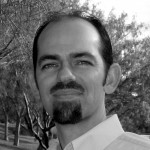About
 Dr. Dr. Caldwell has long been interested in the human condition. While completing prerequisites for medical school, he majored in psychology and became fascinated by the profound connection between the mind and body. This fascination led him to Osteopathic medical school where he learned to approach health and wellness in a holistic manner.
Dr. Dr. Caldwell has long been interested in the human condition. While completing prerequisites for medical school, he majored in psychology and became fascinated by the profound connection between the mind and body. This fascination led him to Osteopathic medical school where he learned to approach health and wellness in a holistic manner.
During his years of residency training at the University of Utah, Dr. Caldwell became increasingly interested in the effects of childhood trauma on physical and psychological health. After completing specialty training and board certification in adult psychiatry, he began PhD graduate studies in human development at the University of California at Davis.
With direct mentoring from renowned attachment researcher Phil Shaver (and others like Ross Thompson and Jay Belsky), Dr. Caldwell focused his study and research on how child maltreatment effects attachment relationships and the capacity for self-regulation, adaptation and resilience. His findings have been published in a series of research articles in peer-reviewed journals and have been presented at conferences and invited lectures across the country.
Dr. Caldwell serves as Assistant Clinical Professor at the University of California at Davis where he teaches students, interns, residents and clinicians about the effects of child maltreatment on health and wellbeing. Currenlty, he is employed full-time at The Meadows of Wickenburg, a world-renowned treatment center for psychological trauma and addiction. In addition to his clinical work there, he writes for The Meadows blog, lectures locally and internationally, and conducts research on topics such as childhood trauma, attachment, emotion regulation, and mindfulness.
Dr. Caldwell has been practicing mindfulness for more than a decade and it has been an important part of his personal and professional journey. While his formal practice of Vipassana (i.e., to see things as they really are) meditation has been critically important, the application of mindfulness in every-day life has been the most transformative. Over time, he has learned how to incorporate mindfulness techniques into his therapeutic work and how to teach people to use these techniques in their own lives.

